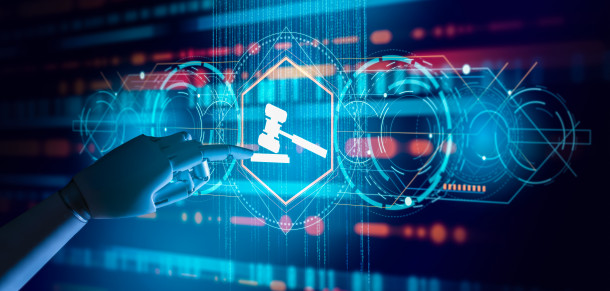News
Almost 4000 judicial operators worldwide join UNESCO’s MOOC on AI and the Rule of Law

On 14 March 2022, UNESCO, The Future Society (TFS), the National Judicial College (NJC), CETIC.br | Nic.br and the Institute of Electrical and Electronics Engineers (IEEE) launched the world’s first global Massive Open Online Course (MOOC) on AI and the Rule of Law, with the support of Open Society Foundation and UNESCO’s Multi-Donor Programme on Freedom of Expression and Safety of Journalists (MDP). Almost 4000 judicial operators are already registered for the course.
About the course
The free course on AI and the rule of law, available in seven languages, features 20 speakers from around the world, including sitting judges from Supreme Courts and Human Right Courts, legal experts and technology experts. It features use cases and best practices from all over the world, including India, Brazil, Senegal, and Kenya.
The course addresses two main issues: First, how judiciaries can use AI in their administrative work to strengthen access to justice and improve administrative processes; and secondly, how judiciaries can address issues of bias and discrimination in the use of AI, and the legal challenges it poses.
The six modules are:
- An Introduction to Why Digital Transformation and AI Matter for Justice Systems
- AI Adoption Across Justice Systems
- The Rise of Online Courts
- Algorithmic Bias and its Implications for Judicial Decision Making
- Safeguarding Human Rights in the Age of AI
- AI Ethics & Governance Concerning Judicial Operators
A certificate of completion will be awarded to all participants after they have completed all modules.
Capacity-building needs of the judiciary
This timely and important legal training responds to a survey of judicial operators worldwide in 2020 where judicial operators expressed an interest in learning about the use of AI in judicial systems.
In the survey of 1265 judicial operators in 100 countries, 85% expressed interest in learning about the working of AI systems, the use of AI tools in legal systems including in the administration of justice, civil and criminal litigation and investigations and law enforcement. 90% underscored the need for legal training concerning the implications of AI systems for bias, discrimination, freedom of expression, privacy, and understanding the ethical challenges presented by the use of AI in different social contexts.
Moreover, from the AI Africa Needs Assessment Survey, 32 Member States in Africa had also requested UNESCO’s support for building human and institutional capacities in AI-related domains in its fields of competence.
To register for the course, please visit: www.judges.org/ai-rol.
For queries, please contact: j.chia@unesco.org.





